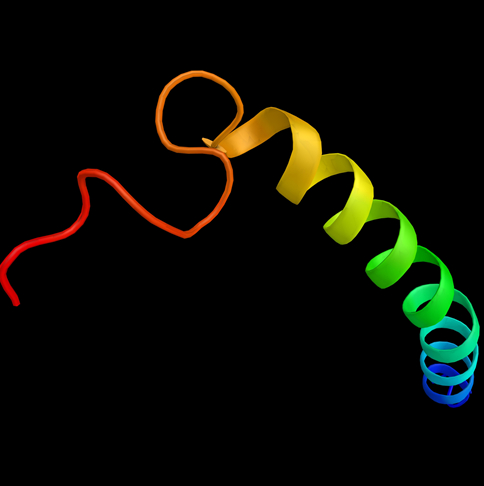
Secretin
Scientific names: Secretin, Oxykrinin
Alternate names: Secretina, Sécrétine
Background
Secretin is a hormone produced by the digestive tract. It is used as a medicine. Some secretin products are taken from pigs, while others are made in the laboratory. Two dosage forms are available as drugs. Secretin is either placed under the tongue or given by IV (intravenously).
Secretin is used to treat autism, schizophrenia, and many other conditions, but there is no good scientific evidence to support these uses.
Secretin is used to treat autism, schizophrenia, and many other conditions, but there is no good scientific evidence to support these uses.
Safety Safety definitions
When given by IV: Secretin is LIKELY SAFE when the prescription product is given by IV by a healthcare provider. Common side effects of secretin include flushing of the face, neck, and chest immediately after a dose. Less common side effects are vomiting, diarrhea, fainting, blood clot, fever, and rapid heartbeat. Some people can have allergic reactions including hives, redness of the skin, and a life-threatening allergic reaction (anaphylaxis).
When given under the tongue: There isn't enough reliable information to know if secretin is safe or what the side effects might be.
When given under the tongue: There isn't enough reliable information to know if secretin is safe or what the side effects might be.
Special Precautions & Warnings:
Pregnancy and breast-feeding: There isn't enough reliable information to know if secretin is safe to use when pregnant or breast-feeding. Stay on the safe side and avoid use.Effectiveness
NatMed Pro rates effectiveness based on scientific evidence according to the following scale: Effective, Likely Effective, Possibly Effective, Possibly Ineffective, Likely Ineffective, Ineffective, and Insufficient Evidence to Rate.
Likely ineffective Effectiveness definitions
- Autism. Although some parents have reported an improvement in stomach and intestinal function, social and behavioral abilities, and language skills after single intravenous doses of secretin, high-quality clinical research shows that secretin does not work any better than placebo for improving symptoms of autism.
Insufficient evidence Effectiveness definitions
- Swelling (inflammation) of the pancreas (pancreatitis). Some early research shows that secretin might help improve symptoms of chronic pancreatitis. But not all research agrees.
- Schizophrenia. Early research shows that secretin does not help people with schizophrenia.
- Intestinal ulcers.
- Digestive tract bleeding.
- Heart failure.
- Other conditions.
Dosing & administration
The appropriate dose of secretin depends on several factors such as the user's age, health, and several other conditions. At this time there is not enough scientific information to determine an appropriate range of doses for secretin. Keep in mind that natural products are not always necessarily safe and dosages can be important. Be sure to follow relevant directions on product labels and consult your pharmacist or physician or other healthcare professional before using.
Interactions with pharmaceuticals
It is not known if Secretin interacts with any medicines. Before taking Secretin, talk with your healthcare professional if you take any medications.
Interactions with herbs & supplements
There are no known interactions with herbs and supplements.
Interactions with foods
There are no known interactions with foods.
Action
Secretin is a hormone that is produced by the digestive tract. It stimulates the release of bicarbonate and water from the pancreas to aid digestion.
vital.ly has licensed monographs from TRC Healthcare.
This monograph was last reviewed on 31/05/2023 10:00:00 and last updated on 01/01/2022 07:43:09. Monographs are reviewed and/or updated multiple times per month and at least once per year.
Natural Medicines disclaims any responsibility related to medical consequences of using any medical product. Effort is made to ensure that the information contained in this monograph is accurate at the time it was published. Consumers and medical professionals who consult this monograph are cautioned that any medical or product related decision is the sole responsibility of the consumer and/or the health care professional. A legal License Agreement sets limitations on downloading, storing, or printing content from this Database. No reproduction of this monograph or any content from this Database is permitted without written permission from the publisher. It is unlawful to download, store, or distribute content from this site.




